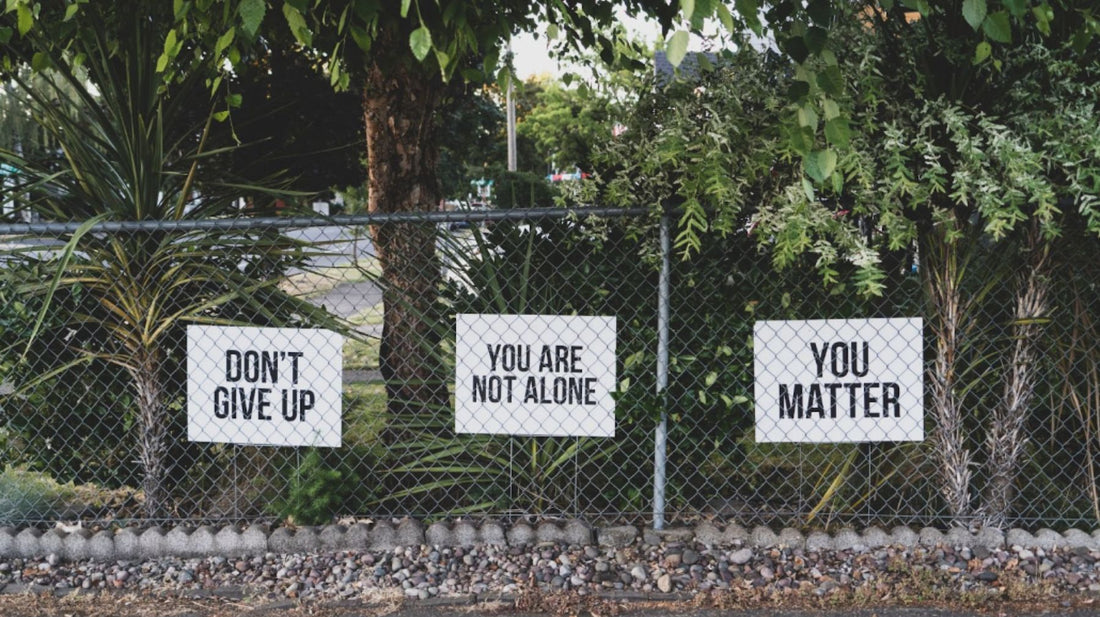
Mental Health and Women: 3 Ways Gender Plays a Vital Role
Share
It’s no secret that men and women are treated differently in all areas of life. Gender roles affect both physical and mental health, so it’s important to consider the relationship between mental health and women.
While both men and women experience mental health issues, there are differences in the type, duration, and presentation of symptoms between men and women.
Find out from Aima on how gender roles affect women’s mental health, the most common mental health problems in women, and why it’s important to address them.
Mental Health Overview
Mental health refers to psychological, emotional, and social well-being. Recently, there has been widespread recognition of the importance of addressing and honoring mental health issues, though there is still some stigma associated with mental health problems.
Mental health problems can affect anyone and talking openly about them makes it easier for people to recognize symptoms and seek help.
When it comes to mental health and women, there are some differences in how they experience illnesses based on sex.
Mental Health and Women
Women are both more affected by mental health issues and more vulnerable to particular mental health disorders than men.
Several data sources show that the prevalence of mental illness (including serious mental illness) is higher in women than men. Women are more likely than men to suffer from anxiety disorders, depression, trauma-related disorders, and eating disorders (WHO, 2000).
In addition to being more affected, mental illness can also present differently in women, with some symptoms being more common in women than in men.
3 Ways Gender Roles Affect Women’s Mental Health
Being a woman in society comes with different expectations than being a man (no surprise here, right?).
Gender roles vary around the world, with some societies having higher gender equality than others. Let’s see three ways gender roles affect mental health and women.
Gender Discrimination Contributes to Mental Health Issues

Gender discrimination is rampant and takes many forms, including unequal pay (even in cases where women do the same work as men), the gender pain gap, and a lack of equal representation in politics, academia, and other areas.
Women are also disproportionately affected by sexual assault and emotional abuse, which are traumatic experiences that can contribute to the development of mental health issues such as chronic anxiety, post-traumatic stress disorder, and depression.
Social Pressure Affects the Mental Health of Women
Women are not immune to the pressures placed on them by society. There are commonly held ideas about what a woman ‘should’ and ‘shouldn’t’ be and do.
For example, women are traditionally expected to be nurturing, accommodating, and understanding, even though this may not come naturally to all women.
On a broader level, the media and popular culture constantly signal what women should look like, which has an impact on self-esteem.
Societal pressures to look a certain way and meet “standards of beauty” can contribute to mental health issues such as eating disorders, an issue much more common in women than men.
Women may feel social pressure to bear children even when they don’t want kids, which can affect their mental health.
Plus, the physical process of pregnancy and childbirth changes hormone levels, with some women experiencing antenatal or postpartum depression.
The Strain of Gender Roles on Women’s Mental Health

Pressure to conform to the prevailing gender roles of a community can affect the mental health of women.
This pressure can start as early as adolescence when children are encouraged to conform to the typical “girl” and “boy” gender roles by parents, friends, and media.
Later in life, the pressure to be a good mother, wife, and caretaker can create psychosocial stress on women.
A disproportionate amount of unpaid work falls on women. Unpaid work refers to work that is done in a household for family members, such as housework, childcare, elderly care, and more.
During the COVID-19 pandemic, many women reported increased levels of stress due to being expected to juggle demanding remote work or frontline healthcare work responsibilities with childcare.
It’s no wonder that women are more likely to be stressed, anxious, and depressed!
Gender roles take on another layer of complexity when considering the LGBTQ community.
People who don’t conform to traditional ideas of gender face discrimination and a lack of understanding that can contribute to mental health issues and create barriers to healthcare access (Veltman and Chaimowitz, 2014).
The Importance of Women’s Mental Health and Well-Being
Why is mental health important to women? Our mental health influences the quality of our interpersonal relationships, our ability to make decisions, and our overall happiness and satisfaction with life.
By understanding and spreading awareness about what factors influence mental health in women, we can collectively narrow the gap between women and men and help improve well-being.
Final Thoughts on Mental Health and Women
Now that you have an idea of how gender roles affect women’s mental health, you are equipped with the knowledge needed to advocate for yourself and others you care about when it comes to mental health and women.
Editor: Lanna Last & Thomas Sauls
Scientifically Reviewed By: Mali Meibod
